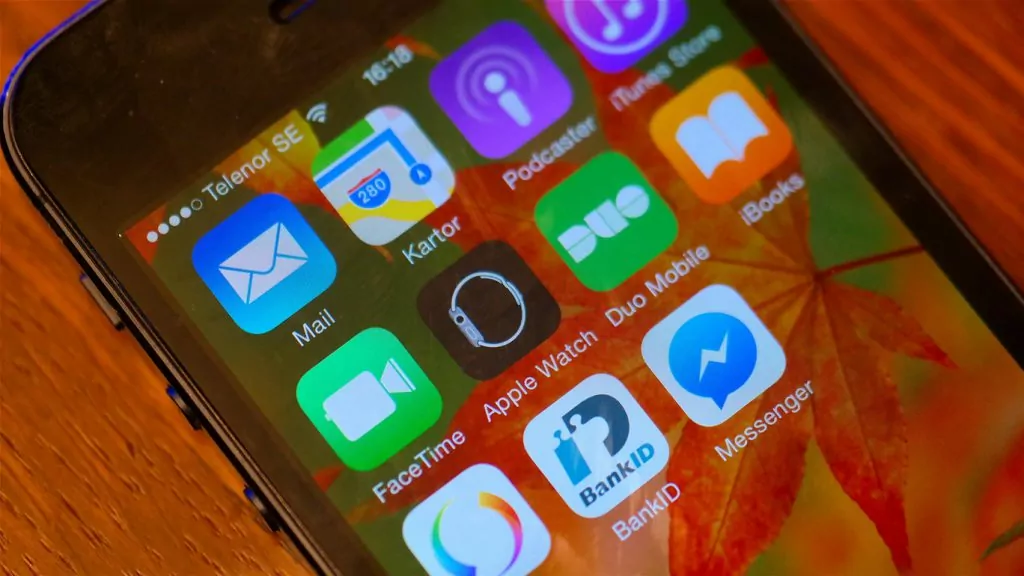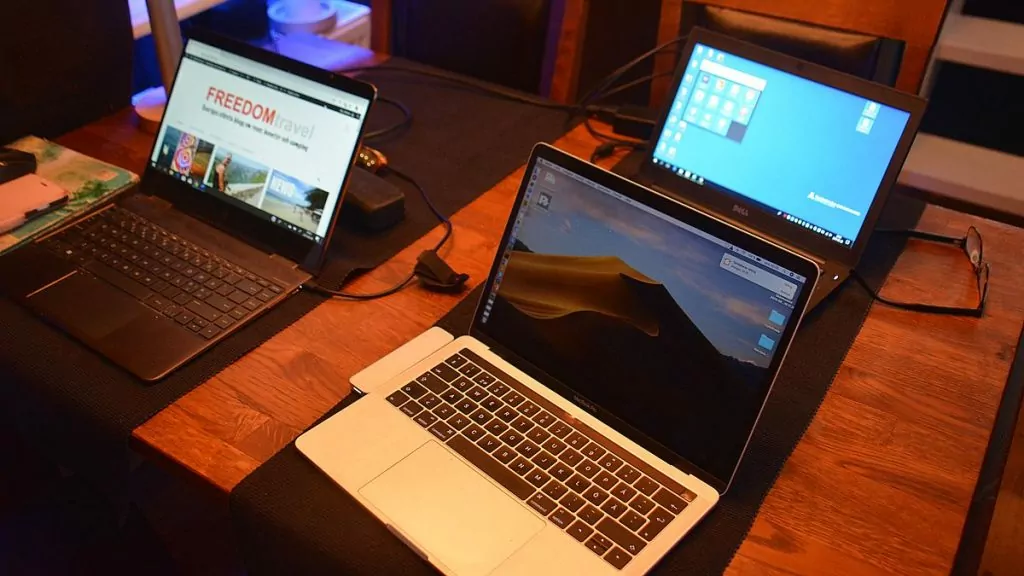This year's edition of the 'Swedes and the Internet' report makes for interesting reading. Most Swedes think that digitalisation makes life easier, while some think it makes life more complicated. But what has really happened to the use of social media? And do people read blogs in 2019?
Innehållsförteckning
Do people read blogs in 2019?
According to the report 'Svenskarna och internet 2019', around half (49 %) of internet users say they read blogs. One in ten read blogs every day, and blog reading is most popular in the 26-45 age group.
Others who enjoy reading blogs are parents with children living at home, city dwellers and those aged 36-45. Fewer than 1 in 10 blog themselves. Blogging is particularly popular among people aged 36-45 and people with disabilities.

Swedes and the internet in 2019
The Swedes and the Internet is an annual survey of the Swedish people's internet habits, the development of internet use and the digitalisation of society. The survey is conducted every year by The Internet Foundation. Here's our quick version, for those who can't be bothered to read the full report.

1. General overview of the development of the internet
Most people in Sweden have access to the internet and access to fibre is increasing, even in rural areas. The elderly are becoming more and more digital. However, just over one million people use not internet on a daily basis, and those who do not use the internet see no benefit from it. Mobile phones are used more and computers less.
- 98 % of households have internet access
- 95 % of the population use the internet
- The tablet is most used by those aged 66-75 years old

2. Digital public services
Most people think that digital public services make things easier, but there is also a small group (especially older people) who think that digitalisation makes things more difficult. At the top of the list are the digital services of the Swedish Tax Agency, which are used by 74 % of the population.
- More than 70 % use digital public services
- 70 % uses public transport digital services
- 50 % uses healthcare e-services
3. Banking services and e-commerce
The majority of the Swedish population uses online banking, Mobile BankID and Swish. Families with children are more likely to use e-commerce apps and second-hand sites, but also consider themselves more vulnerable to fraud.
- More than 90 % use online banking
- More than 80 % use Mobile BankID.
- Almost 80 % use Swish

4. Digital privacy and participation
There are growing concerns about privacy infringements by big companies like Google and Facebook. The majority of people feel part of the digital society, but older people are more likely to feel disengaged.
- Nearly half feel monitored on the internet
- 3 out of 10 people aged 12-25 are victims of cyberbullying.
- 1 in 10 don't feel part of the digital society
5. Search sources and source criticism
Almost everyone Googles, both young and old, and most use Wikipedia. Older people trust information on the internet more than younger people do. Fewer and fewer people share others' content on social media.
- 4 out of 10 pensioners google daily
- 94 % of students use Wikipedia
- 4 out of 5 accept terms of use without reading them

6. Digital communication services
Almost everyone uses email, with older people emailing more often than younger people. Younger people chat more often and chatting is increasing. Facebook Messenger is the most used messaging or calling service. Whatsapp is increasing and Skype is decreasing.
- 97 % uses e-mail
- More than 90 % under 45 years old are chatting
- 70 % makes video calls
7. Social media
A large majority use social media, but the growth has stalled. Instagram and Snapchat have declined in growth rate and Facebook has stalled. Young people favour Snapchat and parents hang out on Facebook. Women use social media more than men.
- 83 % uses social media
- 40 % think that time spent on social media is not meaningful
- 98 % of students use social media.

8. media consumption
Podcasts and digital books are showing strong growth. Consumption of films and music online is increasing, and more people are willing to pay for these services. Netflix is growing, but YouTube has stalled in growth. Subscriptions to digital magazines are increasing slightly, but if you count paper and digital magazines together, newspaper reading is declining.
- 1 in 3 listen to audio books
- More than one in three reads an online newspaper every day
- 50 % reads blogs
9. Online games
More than half of internet users play entertainment games online and one in ten play for money online. Young men are the main gamblers. Most people prefer to play on their mobile phones.
- 3 out of 5 play entertainment games online
- Over 1 in 10 see mobile games as time well spent
How have you changed your internet use?
A colleague of mine told me that one day her daughter asked "Mom, what was your favourite Youtuber when you were little?". When you hear things like that, you are reminded of how fast the internet has evolved ...
I think we have gradually started to use more and more digital public services. However, I still use my computer more than my mobile phone, and we haven't started listening to podcasts... Do you recognise yourself in the survey figures? Have you changed your internet use in recent years?





















BP says:
That was an interesting and fun read! I can say that I have not changed my internet behaviour significantly over the years. However, I do not own an iPad and do not have mobile BankID, not Swish, Facebook, Instagram, Whatsupp, Skype or Snapchat either. Have never played online games.
Read various online newspapers and follow BBC news coverage. So I guess I'm fairly up to date but seem to be backward in terms of "social apps".
24 October 2019 - 14:29
Helena says:
You have to choose from everything and see what you like/use. If you use "everything" you will probably be a little exhausted. Then it's easy to not be able to take in certain things, even if you would actually like it 😉.
24 October 2019 - 18:01
Emma, Sol som sol? says:
I have had BankID since it arrived and it is almost a necessity, especially when you live like we do. I have Viber, Skype and WhatsApp, the latter of which I use daily. Twitter is used very moderately.
Have not embraced Swish (or Bizum in Spain), Instagram, Facebook, Snapchat ...
I have a phone, tablet and computer. They are "interconnected" with Google and Windows programmes and various logins, but not everything works equally well regardless of platform, so you learn what works or not.
It's damn hard to keep up all the time ...
24 October 2019 - 16:30
Helena says:
I also think BankID is very practical, makes life easier! I do not use WhatsApp, but have understood that it is used much more in some other countries!? It is important to try to keep up somewhat, but still "sift" and find what you like / benefit from.
24 October 2019 - 18:03
Geddfish says:
Interesting survey. Pensioners in my neighbourhood are very good at social media.
Our computer park with my husband was quite large. Two desktops and some laptops and mobiles with different subscriptions due to camping.
Today a laptop, tablet and mobile phone. Uses WhatsUp, Instagram, Facebook (mostly for working with MOD), Messenger, mobile BankId, own YouTube channel, Swish. Listening to audiobooks. Thanks for Google!
Uses the tablet the least, could be without it 😀.
24 October 2019 - 16:50
Helena says:
What a computer park you have! And you really take advantage of the offer! 🙂
24 October 2019 - 18:04
Matts Torebring says:
A few years ago I spent a lot more time on my blog. Today it is much less, mostly due to the fact that few people write, and that many write much less. For me, the blog is a moment of relaxation in the evening after work, then I enjoy writing and find it interesting.
24 October 2019 - 20:34
Lena i Wales says:
Wow, interesting figures!
How quickly the world has changed with the internet.
25 October 2019 - 12:17
Cari says:
Mobile BankID and Swish (best invention after the wheel???).
I sometimes wonder how people used to book trips etc. in the past. It's fascinating how fast it goes.
And yes, I have been around for a while (born 1960).
25 October 2019 - 13:46
Ama de casa says:
I am mostly on blogs. Has FB but is there very rarely. Otherwise I use bankid and skype. Plus news (and gossip 😉 ) on online newspapers and web TV.
I'm severely addicted to the internet... I get a little excited (a clear understatement!) when the connection to the internet disappears. However, I manage well without the net when I am outside the doors of my home ("home" also includes hotels and cabins and such 😉 ).
26 October 2019 - 0:07
Lena - gott för själen says:
Haha, "...favourite Youtuber". Yes, things have happened!
Hug Lena
01 November 2019 - 6:04